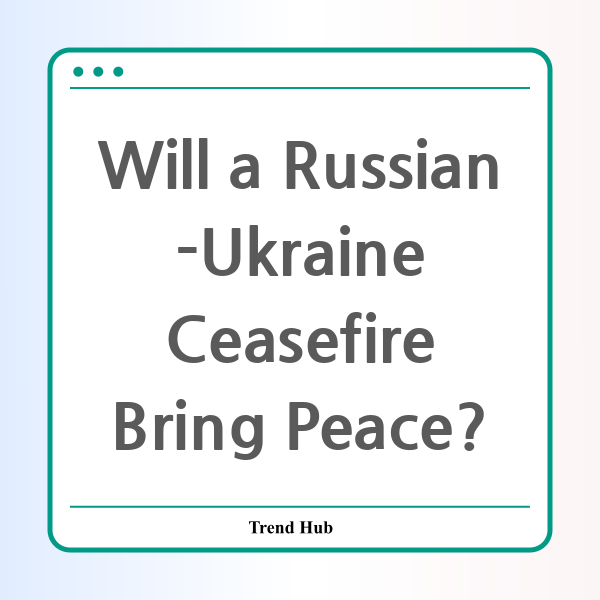* This website participates in the Amazon Affiliate Program and earns from qualifying purchases.

Can a ceasefire between Russia and Ukraine lead to lasting peace? This critical question arises as Europe's leaders have proposed a ceasefire aimed at unveiling Russian President Vladimir Putin's true intentions in the ongoing conflict. As we delve into the implications of this proposal, we explore whether this diplomatic maneuver can genuinely lead to a resolution or if it merely masks the complexities of a persistent war.
The current geopolitical landscape is fraught with tension, as Ukraine's military continues to face aggressive actions from Russia. With summer approaching, the probability of heightened violence looms large. European leaders have recognized the urgency of the situation and, despite past frustrations with the Trump administration's approach to foreign policy, they have made a concerted effort to push for a ceasefire that could offer a temporary reprieve.
This proposed 30-day unconditional ceasefire is not just a plea for peace; it serves as a litmus test for Russia regarding its war ambitions. By potentially forcing Putin to reveal his true goals, the ceasefire could reshape the negotiation landscape. However, the proposal presents an intricate challenge: Can Ukraine's forces hold back from retaliating in self-defense? This remains one of the many questions on the minds of Ukrainian leaders.
In the past, the Kremlin has displayed a penchant for obfuscation, often crafting ambiguous responses that allow them to maintain a façade of diplomacy while continuing their operations on the ground. It is not uncommon for Russia to accept a ceasefire only to later accuse Ukraine of instigating violence, thus justifying their continued aggression. This cycle of manipulation raises concerns about the viability of a genuine ceasefire.
Moreover, the delicate nature of this truce hinges on the willingness of various nations, especially the United States, to monitor its implementation effectively. With millions of troops and extensive frontlines, the capacity for thorough oversight is critical. Accurate monitoring can help counteract the inevitable wave of misinformation that follows any military engagement.
As discussions of this ceasefire progress, European unity is paramount. The cohesion displayed by leaders from Ukraine, France, Germany, the UK, and Poland indicates a strong resolve to maintain support for Kyiv. Yet, any signs of wavering from the U.S. could considerably undermine this collective effort. European leaders have expressed concern that a disconnection from American support could lead to disastrous consequences, further escalating tensions across the continent.
This situation is reminiscent of the precursors to conflicts in the 20th century, where the costs of inaction proved disastrous. As we look to the future, the reality may be that diplomatic efforts may not yield the desired results; thus, leaders must prepare for the likelihood of a more protracted conflict. If Putin remains unwilling to pursue genuine peace, the proposed ceasefire could merely act as a delaying tactic while he strengthens his military position.
In conclusion, the proposed ceasefire between Russia and Ukraine is a pivotal moment in European diplomacy. While it holds the potential to unveil Putin's true intentions, the risks and uncertainties associated with its implementation cannot be overlooked. Europe must remain vigilant, prepared to respond to any violations of the ceasefire, and ready to bolster military support for Ukraine if necessary. The journey toward peace is fraught with challenges, but the continuity of unity among European nations may prove to be the key to navigating these turbulent waters.
* This website participates in the Amazon Affiliate Program and earns from qualifying purchases.